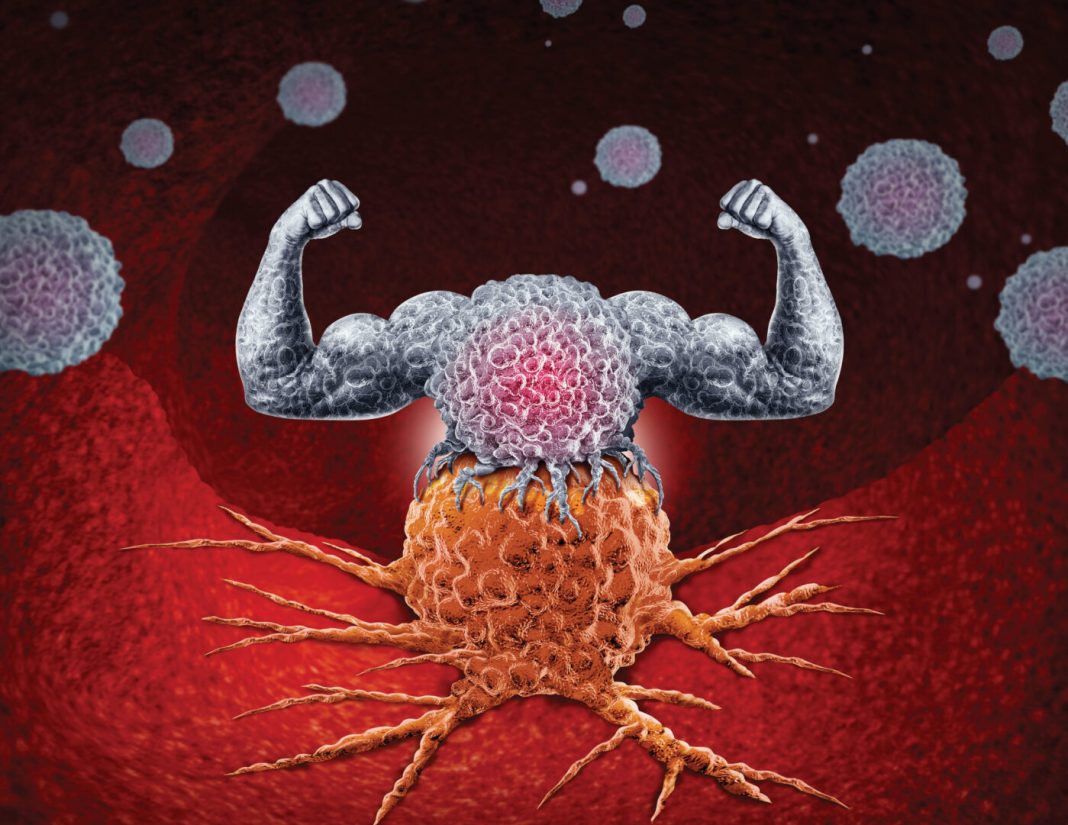Immunotherapy enables a patient’s own immune system to attack disease. This breakthrough therapy is helping some people with hard-to-treat cancer feel better and live longer. However, it may not work for everyone. Now, researchers at Sloan Kettering Institute (SKI) report they have discovered in mice, a new immune cell “soldier” that could be a good target for immunotherapy. Their findings may help bridge the gap between those who respond to immunotherapy and those who don’t.
Their findings are reported in the journal Nature, in an article titled, “Program of self-reactive innate-like T cell-mediated cancer immunity.”
“Cellular transformation induces phenotypically diverse populations of tumor-infiltrating T cells, and immune checkpoint blockade therapies preferentially target T cells that recognize cancer cell neoantigens,” the researchers wrote. “Yet, how other classes of tumor-infiltrating T cells contribute to cancer immunosurveillance remains elusive. Here, in a survey of T cells in mouse and human malignancies, we identified a population of αβ T cell receptor (TCR)-positive FCER1G-expressing innate-like T cells with high cytotoxic potential8 (ILTCKs).”

The researchers have dubbed the new cells as killer innate-like T cells. The cells differ in notable ways from the conventional target of many immunotherapies—the cytotoxic (aka “killer”) T cells. The researchers observed the cells get exhausted from extended activity as cytotoxic T cells do. They also noted the cells can penetrate more deeply into tissues where cancer is hiding.
“We think these killer innate-like T cells could be targeted or genetically engineered for cancer therapy,” explained Ming Li, PhD, an immunologist at SKI and the lead author of the new study. “They may be better at reaching and killing solid tumors than conventional T cells.”
Li’s team previously reported the existence of this unusual cell population in 2016. At that time, it was clear to his team that these cells had the power to kill cancer cells, but they knew little about where the cells come from or how they work.
For the current study, the researchers used single-cell analysis and CRISPR genome editing to further characterize the cells. The researchers observed the killer innate-like T cells don’t make the immune checkpoint molecule PD-1.
They also noted the cells also appear to recognize different markers, or antigens, on cancer cells. Lastly, unlike conventional T cells, they don’t recirculate throughout the blood and lymph fluid, making stops in lymph nodes. Rather, they appear to home directly to tissues throughout the body, where they seek out danger.
Li’s team did most of their experiments in mice, but they confirmed that these killer innate-like T cells are present in human tumors, including colon cancer tumors from patients at Memorial Sloan Kettering. The researchers are looking forward to translating these findings from the lab to the clinic.


